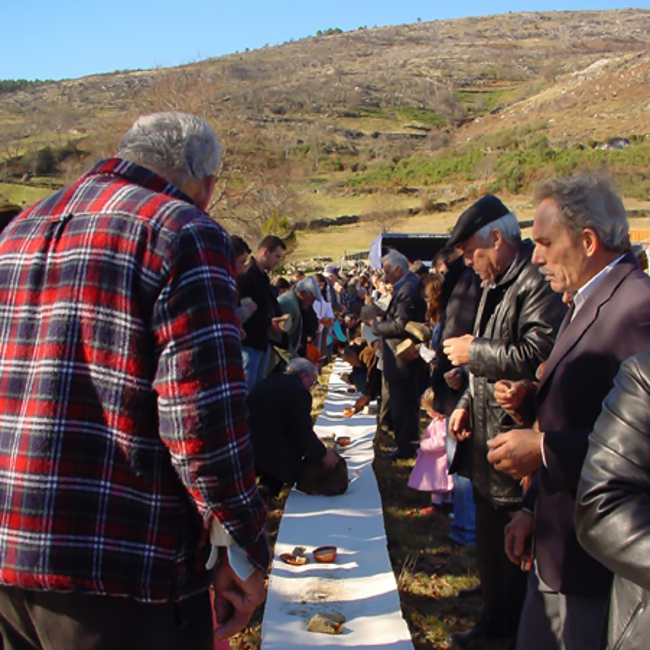Feast of Popes

Samão (odd year) / Gondiães (by ano)
20 from January
The origins and motivations of the Feast of the Popes, held annually in time S. Sebastian, We Samão places and of Gondiães, the Cabeceiras de Basto, are lost in the memory of the times.
The Feast of Popes, now in Gondiães, ora no Samão, year yes, not year, maintains its vigor, because it stems from a promise made in the Middle Ages, by the respective mountain villages, during a great plague that devastated these mountain peoples, leading these avoenges to resort to S. Sebastião to rid them of the disease that had hit humans and animals.
Therefore, every year, no dia 20 from January, the promise is renewed and the party is repeated.
A week before, preparations begin. The bread is made and baked by the women of the village so that on S. Sebastian, the products are blessed and offered to all who go there to honor the patron. As dads, are made by men and can be eaten hot or cold. Pork is served in clay dishes and the region's green wine is drunk by traditional clay bowls.
In this day, eat the porridge, the bread, the bacon and drink the wine, products that were previously blessed at Casa do Santo, subsequently following in ox carts in the form of a procession to a field, along which linen towels are placed on the floor and on which the food is distributed. A wooden stick, serves as a measure to distribute bread, to meat, porridge and wine over dozens and dozens of meters from this improvised “table”.
At the end of the meal, some people take the pieces of bread that they had lucked out with them and then keep it for some time at home because of the famous “mezinha” that they believe exists in the bread that has been blessed. The most credulous say that it never gets mold and that it serves as a remedy for diseases that affect people and animals.
For its originality, for your typicalism, and especially, for your own ritual, the “Festa das Papas” represents one of the most pure and traditional cultural and religious events in Cabeceiras de Basto.
Source: (Cabeceiras de Basto, 2016)


